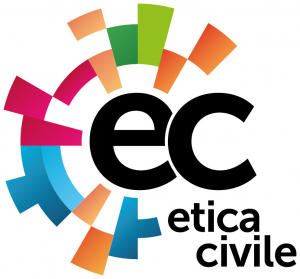International Camp: final document
INTERNATIONAL CAMP 2015
#CITYINGTHEWORLD
LINK CITIES UNITE THE WORLD
Cities are the bricks of our civilization. Both for our everyday life and the historical genesis of mankind the cities’ dimension has always been an issue of paramount importance. On the current stage of our development this topic is becoming even more significant. We young people from Albania, Angola, Brazil, Belarus, Congo Republic, Democratic Republic of Congo, Ecuador, France, Israel, Italia, Morocco, Nigeria, Palestine, Russia, Syria, Yemen gathered in «La Vela» Village to discuss the cities’ role and place in the contemporary society. In a friendly, serene and agreeable atmosphere with a respectful attitude and an open-minded approach we not only shared our thoughts and experiences regarding the above theme but in fact we also lived a multinational, -cultural, and –religious city at our International Camp. Historically, many philosophers questioned the concept of an ideal city and whether it is possible to make it real. According to us, the only possible way to reach this goal is to create cities that are man-sized. Cities can be seen as a book made of symbols and signs, with different and profound meanings; man-sized city implies that citizens are able to read this book and provide it with an added value. Cities are not just made of stones, but mainly embodied by people. Therefore, keeping the city alive infers an active participation in all the processes which constitute the city existence. On the other hand, cities are to provide their inhabitants with the opportunity to satisfy their predominant needs. Since houses are the basis for the creation of the very first communities and relationships between citizens, cities must guarantee a place for everyone. At the same time, cities are responsible for the welfare of people, which cannot but encompass healthcare effectuated by hospitals. Squares, as meeting points, permit to develop and broaden these links between people, and make them work for the benefit of the society. Political and administrative institutions are designed to give shape to this activity and to bring it forward through representative and official channels. However, in order to be an active citizen, you need to be educated, which in its turn justifies the functioning of schools and universities. Another fundamental element is being aware of your identity, rooted in historical and cultural sites of the city. Only the knowledge of our past allows us to look into the future and to find a balance between tradition and innovation. Religion and faith as an integral part of the same identity find expression in worship places, where one can sense the spirit of the city. Cities are not self-referential, because they find complete realization only if they create bonds with their peers. Communication is stronger than stones or monuments. In the current geo-political situation, which is characterized by an on-going confrontation between actors both on global and local level, interaction between cities can be regarded as an important tool to achieve peace. To quote Professor La Pira, «Reigns pass, cities remain» [Giorgio La Pira, Leningrad, 1970]. In this context, it is worth mentioning that sometimes «city diplomacy» can be efficient in situations when ordinary diplomacy tends to fail. That is why such tools as the institute of twin cities, international mayors’ conferences, programs of intercity student exchange, as well as similar means, have a lot of potential in terms of second-track diplomacy and soft power: nevertheless, these instruments are really effective only if there’s an actual participation of citizens, and they do not remain just a formal connection between institutions. Cities’ life has to reflect all aspects of their inhabitants’ identity: they have to take care of the citizens’ personal dimension through an education that makes them aware of their active role in city life; they have to create the premises and the appropriate social environment for a mutually beneficial cooperation and dialogue; last but not least, they should not be considered only as a ground for human relations, but also as a convergence point of the multiform experiences of spiritual and religious research. They should be reprojected considering the human path to God: therefore, cities have to welcome, integrate, include different forms of faith and religions in line with the principle of multinationals, -cultural and –religious concordia. We want to live in a reality where cities are not ruled by religions, but where religions are respected and considered as an integrative part of city and citizens life. We cannot deny that believers citizens bring a different perspective to the multifaceted society we live in, given their perception of the city as an expression of a divine scheme, and not just a place built by men for men. We do believe that cities still have the potential of being the protagonists in the world scenario, but only by embracing some core aspects of their essential and innate nature: they should be able to serve as bridges between themselves and between the persons inhabiting them. Cities should be dynamic and resilient realities, able to maintain their own identity while discussing with and welcoming different traditions, cultures and religions. As Jane Jacobs said, «Dull, inert cities, it is true, do contain the seeds of their own destruction and little else. But lively, diverse, intense cities contain the seeds of their own regeneration, with energy enough to carry over for problems and needs outside themselves.» [Jane Jacobs, 1961]. As young people, we hereby would like to stress that our first commitment in a city is to feel involved and responsible for our cities’ needs and problems. First of all, it’s fundamental to perceive the place we live in as the home we should care about: if we think of a city as a mosaic, every single person has the duty to give a unique and an irreplaceable contribution thereto. What we just lived here in «La Vela» Village give us the opportunity to concretely implement our experience, testifying and reproducing in our cities experiences of «living together» with people of different cultures and religions, as seeds of a new process of integration, friendship and peace among persons, cities and nations.





